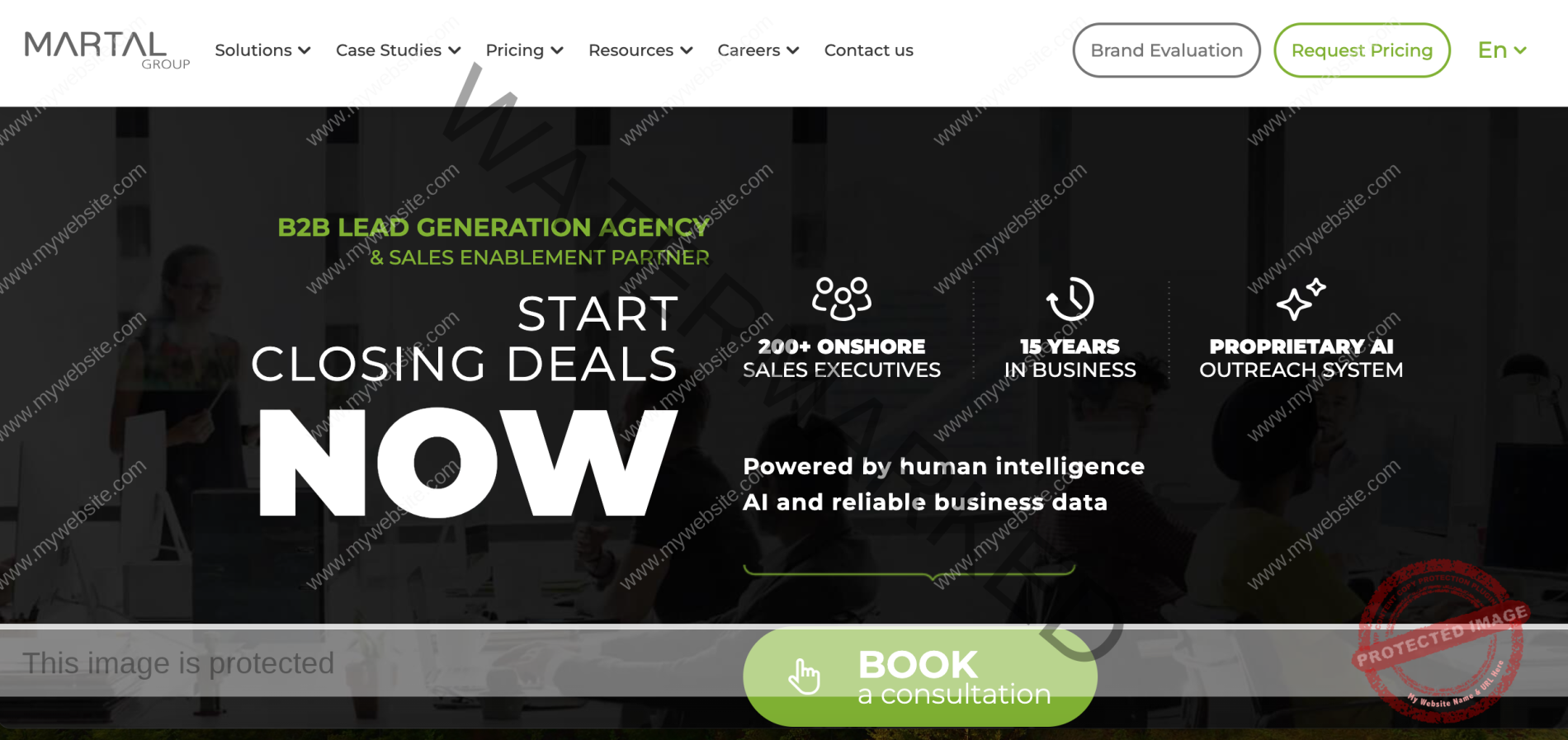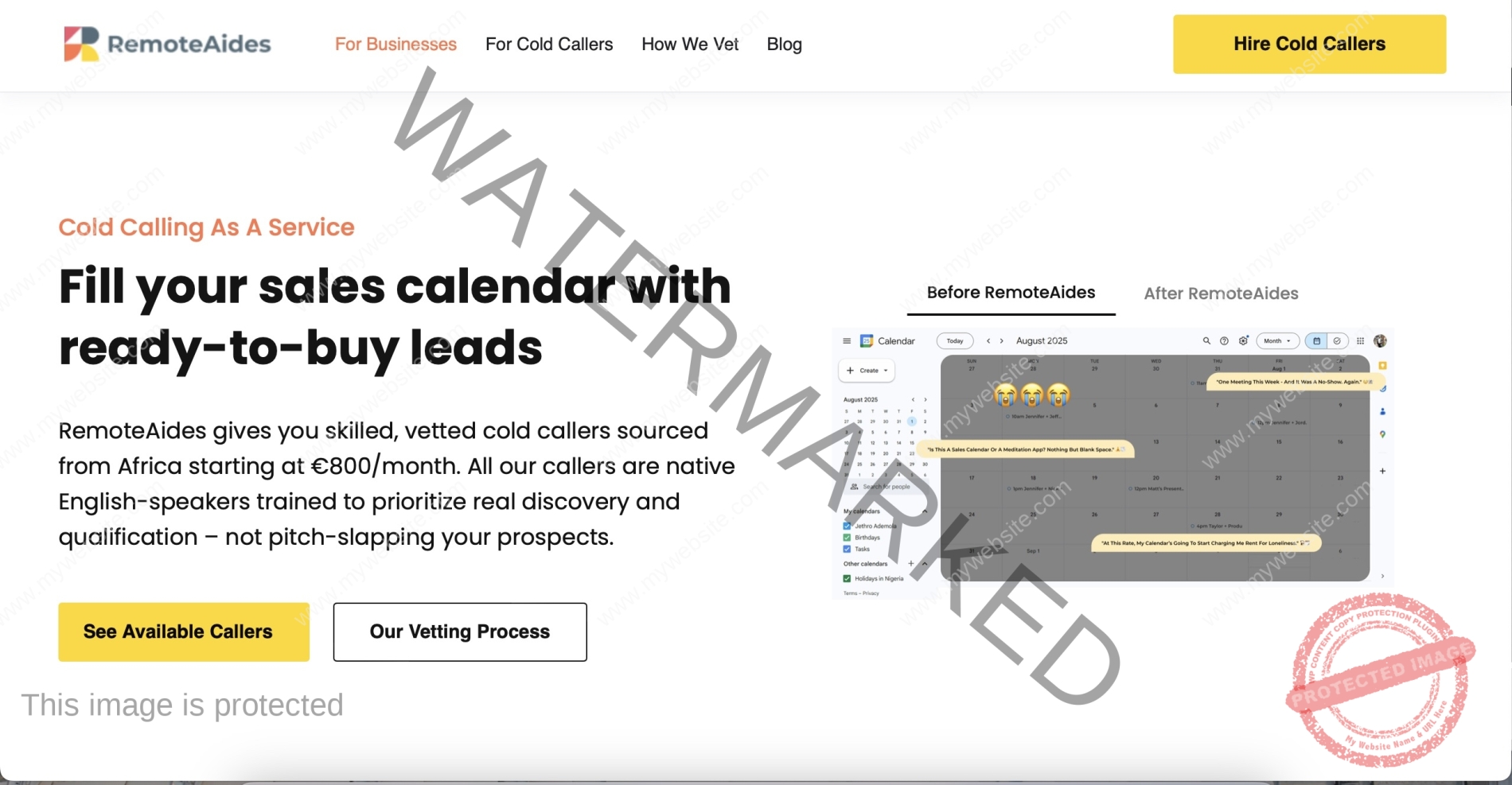TL;DR
Martal Group = multichannel lead gen, fractional SDRs, global coverage, seasoned in tech and SaaS.
Apollo = sales intelligence platform with integrated outreach tools, big data reach, and automation muscle.
If you want a hands-on outbound team with human SDR execution, Martal is your play.
If you want an all-in-one software platform to run outreach in-house, Apollo is the leaner option.
But if you want pure cold calling speed, human connection, and transparent pricing? There is a sharper alternative — RemoteAides.
Why This Comparison Matters
The challenge of building a cold calling machine in-house has not changed. It is still a grind. You spend weeks hiring, more weeks training, and before the quarter ends, you are already managing burnout and turnover.
For founders and GTM leaders, the question is no longer “should I outsource?” It is “who do I trust to run outbound so I can focus on closing?”
Martal Group and Apollo are two names that come up often, but they could not be more different in how they deliver outbound. Martal is a service-first agency with real human SDRs. Apollo is a software-first platform that gives you the tools and data to run outbound yourself.
On paper, they can both get you in front of prospects. In practice, the approach and the experience are entirely different.
Martal Group: Human-Led Outbound for High-Growth B2B

Martal Group positions itself as a fractional sales development team, essentially letting you “hire” SDRs without adding headcount. Their SDRs handle outreach through calls, email, and LinkedIn, and they lean heavily on a multichannel rhythm to reach decision-makers.
They have a strong track record with tech, SaaS, and B2B service companies, especially in North America and Europe. Their selling point is that you are not buying generic outsourced calling. You are getting SDRs with industry familiarity who act as an extension of your sales team.
The service is end-to-end: from ICP definition to messaging, sequencing, and booking meetings. Cold calling is part of the mix, but like Belkins, it is one tactic in a broader campaign.
The upside is that Martal’s SDRs can operate under your brand, adapt your pitch, and manage multiple touchpoints with prospects. The downside is that because calls share space with email and LinkedIn, you might not see the same call volume as you would with a phone-first agency.
Why companies choose Martal Group over Apollo:
Fully managed outbound without needing internal SDR hires.
Experienced reps who work under your brand identity.
Multichannel campaigns that blend calls, email, and LinkedIn.
Strong fit for companies who want human SDR execution without building a team in-house.
Apollo: Sales Intelligence and Outreach in One Platform
Apollo is not an agency. It is a sales technology platform. They have built one of the largest B2B contact databases, paired with tools for list building, email outreach, and call dialing. In other words, they give you the data and the system, and you or your team run the campaigns.
For teams that already have SDRs in place, Apollo is a data and execution powerhouse. You can build hyper-targeted lists, track prospect engagement, automate outreach sequences, and even call directly from the platform.
The main draw is scale. Apollo’s database covers hundreds of millions of contacts. If your market is broad and you want to go wide quickly, Apollo gives you the reach.
The flip side is that you are still responsible for the work. Apollo does not give you SDRs, strategy, or messaging refinement unless you bring your own. And while their dialer exists, it is not designed to be a pure-play cold calling machine. It is part of a larger sales engagement stack.
Why companies choose Apollo over Martal Group:
Access to one of the largest, constantly updated B2B contact databases.
Tight integration of data and outreach tools in a single platform.
Cost-effective for teams that already have SDRs but need better data and automation.
Scales well for in-house teams who want to control the entire outreach process.
Head-to-Head: Martal Group vs Apollo in the Real World
This is not just a service vs service comparison. It is service vs software.
Martal Group gives you trained SDRs who will do the outreach for you. You are paying for execution, industry expertise, and brand-aligned conversations. Apollo gives you the infrastructure, a powerful platform, and data, but you still need your own people to make it work.
If you need meetings now and do not have SDRs in place, Martal is the faster on-ramp. If you already have a sales team but they are lacking data and systems, Apollo is the smarter investment.
When it comes to cold calling specifically, Martal SDRs can get on the phones for you, but it is still part of a multichannel cadence. Apollo’s dialer is useful, but it is not built for phone-first momentum. It is there to support sequences.
Cold Calling vs Multichannel in 2025
The multichannel approach has been the default for years. Mix email, LinkedIn, and calls to increase chances of contact. It works, but it is not without trade-offs.
Calls in multichannel campaigns can become “one touch among many” instead of the main driver. That means slower feedback loops, fewer live conversations, and a heavier reliance on asynchronous channels like email.
Cold calling on its own is still the fastest way to pressure-test your messaging and get real-time buyer feedback. It is the only channel where you can hear hesitation, shift your pitch, and book the meeting in the same interaction.
The problem is, neither Martal Group nor Apollo is purely phone-first. For companies that want cold calling to be the core driver, a different approach is needed.
A Sharper Alternative: RemoteAides

This is where RemoteAides earns attention. While Martal Group and Apollo split focus between calls and other channels, or in Apollo’s case leave execution to you, RemoteAides is unapologetically phone-first.
There is no juggling channels. No complex sequencing tools. Just professional, high-stamina cold callers dialing your ICP, handling objections, and booking qualified meetings.
The team is made up of experienced African-based reps who speak fluent English, understand nuance in tone, and adapt to your brand’s voice. Every rep is handpicked for your market, not whoever is free.
Onboarding is fast, in days not weeks, and pricing is transparent at €800 per month per rep with no hidden fees. For founders who want a clear, lean path to pipeline, that combination is hard to beat.
What to Look for in a Cold Calling Partner
Whether you are leaning toward Martal, Apollo, or a phone-first partner like RemoteAides, a few things matter more than any sales pitch:
Real sales talent who can adapt in the moment, not just read scripts.
ICP precision so every call matters.
Call transparency with access to recordings for quality control and learning.
Clear pricing with no surprises buried in contracts.
Cultural alignment so they sound like part of your team.
FAQs
1. Which is better for cold calling — Martal Group or Apollo?
Martal can deliver cold calls as part of a managed multichannel program. Apollo gives you the tools and data to make calls yourself but does not execute for you.
2. How fast can they start?
Martal can be live in a couple of weeks after ICP and messaging alignment. Apollo is instant in terms of access, but you will still need SDRs to put the data to use.
3. Is RemoteAides a viable alternative?
Yes. If cold calling is your priority, RemoteAides delivers faster ramp-up, dedicated reps, and focused phone-first outreach without the distractions of extra channels.



